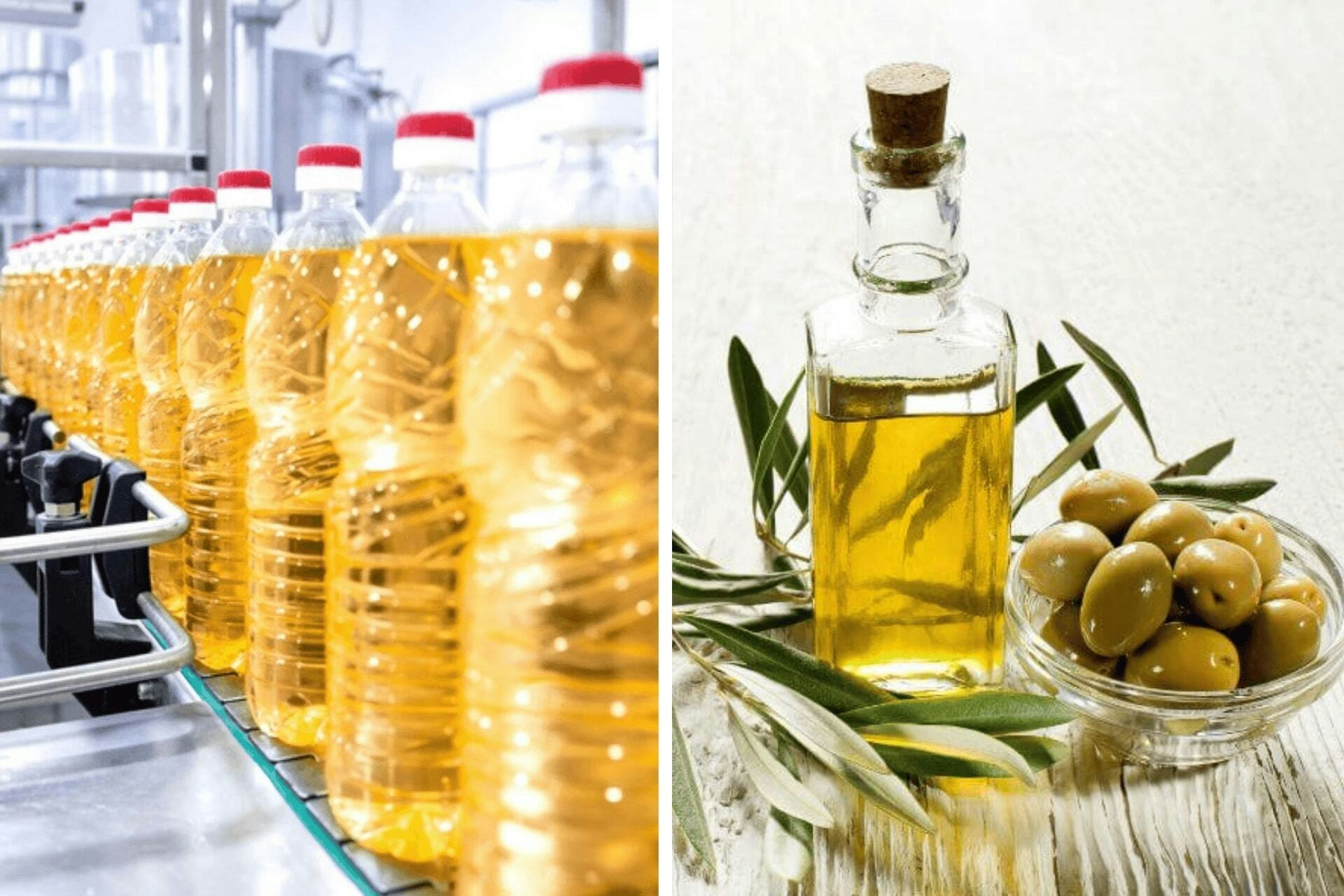Many people don’t realize that not all avocado oil is as pure as it seems. Avocado oil isn’t a seed oil because it comes from the creamy pulp of the fruit, not the seed. However, some products labeled as avocado oil are mixed with cheaper seed oils, which makes them less healthy and lower in quality.
Making sure avocado oil is pure and high-quality is worth the effort. Here’s how to pick the right one. But before we dive into how to choose the best avocado oil, let’s first clarify what seed oils are and why they’re often used as fillers.
What are Seed Oils?
Seed oils, derived from the seeds of various plants, are commonly used in cooking and food production. These oils include sunflower, canola, soybean, sesame, cottonseed, and grape seed oils.
Seed oils are mostly extracted using a process called solvent extraction, which uses hexane to pull oil from seeds. First, the seeds are cleaned, cooked, and dried, then mixed with hexane to dissolve the oil. The oil is separated from the solids, which are often used as animal feed ❶.
While this method works well, it raises concerns about leftover chemicals in the oil. Moreover, harmful changes occur when the oil is heated too much, such as the creation of toxic compounds.
Related: Seed Oils: Are They Really Bad for You?
Is Avocado Oil a Seed Oil?
Avocado oil is not considered a seed oil because it’s made from the soft, fleshy part of the avocado fruit, not its seed. However, a growing problem in the market is the mixing of avocado oil with cheaper, lower-quality seed oils, like soybean or sunflower oil.
Many store-brand or low-cost avocado oils are often diluted with these cheaper oils. This practice, known as adulteration, has become common, so you may not be getting the full nutritional value that pure avocado oil offers.
To make sure you’re getting authentic avocado oil, buy from trusted brands and look for certifications that guarantee the oil is pure.
Related: Your Ultimate Seed Oil-Free Grocery List
Nearly 70% of Private Label Avocado Oil Contains Seed Oils
A study by researchers at the University of California, Davis, tested 36 avocado oil products sold under store brands. These oils are made by companies that don’t own the brand but sell the oil with the store's label. It revealed that only 31% of the oils tested were 100% pure avocado oil, while 36% matched the quality they claimed to have ❷.
Cheaper avocado oil products are more likely to be mixed with other lower-quality or less expensive oils. However, it’s important to note that paying more for avocado oil doesn’t always mean you’re getting a better product. High-priced oils can still be of poor quality.
Related: Non-Seed Oils
How to Identify Seed Oil-Free Avocado Oil
Choosing pure avocado oil is not about picking the first bottle you see — or even the most expensive one. Follow these steps to ensure that you’re choosing avocado oil that’s pure and free from lower-quality seed oils:
Look for certification seals
Certification seals are an important way to ensure the avocado oil you’re buying is pure and free from seed oils. Look for seals such as “Seed Oil Free Certified.”
While not specific to seed oils, USDA Organic certification indicates adherence to strict agricultural standards, which often correlate with higher quality and less likelihood of adulteration.
Choose reputable brands
Opt for brands that have a proven track record of quality and transparency. Look for companies that provide detailed information about their sourcing and production methods.
Many trusted brands test their avocado oil through independent labs and share the results to prove it’s pure and authentic.
Check the ingredients list
Carefully read the ingredients label on the bottle. Pure avocado oil should list only "avocado oil" as its ingredient. Be wary of oils that mention blends or include other oils, such as soybean, canola, or sunflower oil. Labels like "100% pure avocado oil" or "extra virgin avocado oil" can be helpful, but check for trusted certifications.
Check the price
While lower-cost avocado oils are more likely to be diluted with seed oils, price alone isn’t a reliable indicator of quality. Some high-priced products have also been found to be adulterated. Pairing the price with certifications, reputable brands, and lab tests can help you make a better decision.
Related: The Best Avocado Oil Substitute and Other Alternatives
The Bottom Line
Avocado oil is a healthy and versatile cooking option, but many products are mixed with cheaper seed oils, which lowers their quality and health benefits.
To make sure you’re getting pure avocado oil, look for certification seals, stick to trusted brands, and always check the ingredients. While price can help guide your choice, it shouldn’t be the only factor.
Looking for another option free from seed oils? Try algae oil from the Algae Cooking Club — a clean, healthy alternative!




